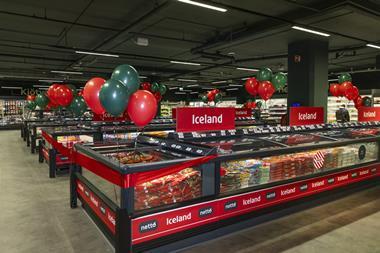Seafood importers could be in for a £40m windfall after Seafish suffered a crushing defeat in the Court of Appeal over the levy it charges on imported fish.
As of 18 March, it can no longer charge levy on fish that has first been landed outside the UK and subsequently imported, unless it falls within an exception for goods imported via the Channel Tunnel.
The judgment, which was handed down last week, is the latest twist in a case initiated by British Seafood in 2008, which objected to the levy that Seafish charges on fish imports.
The ruling is a major setback for Seafish after an initial victory in the High Court in August last year. "We were absolutely shocked and surprised by it," said chief executive John Rutherford.
Seafish has already announced its intention to appeal to the Supreme Court, and expressed confidence the Court of Appeal's decision would be overturned. However, in the event that it is unsuccessful, it stands to lose three quarters of its income. It will also be liable to pay up to £40m to other companies that might make a claim for levy charges they have paid in the past.
Seafish had already drawn up contingency plans in the event of an unsuccessful appeal, said Rutherford. It had four or five scenarios in place to ensure it could continue to operate should it lose. "There are a whole raft of sub-options possible that are being talked about, not only with Defra but with government and industry."
In the meantime, the decision has thrown Seafish's levy collection scheme into disarray. Following the judgment it wrote to importers to clarify the new rules for charging levy.
Defra, a co-defendant in the case, has confirmed its intention to seek leave to appeal.
The decision is a coup for British Seafood, which plunged into administration last month. Its claim against Seafish amounts to almost £2m.
In 2009, 719,000 tonnes of seafood worth £2.17bn were imported into the UK
As of 18 March, it can no longer charge levy on fish that has first been landed outside the UK and subsequently imported, unless it falls within an exception for goods imported via the Channel Tunnel.
The judgment, which was handed down last week, is the latest twist in a case initiated by British Seafood in 2008, which objected to the levy that Seafish charges on fish imports.
The ruling is a major setback for Seafish after an initial victory in the High Court in August last year. "We were absolutely shocked and surprised by it," said chief executive John Rutherford.
Seafish has already announced its intention to appeal to the Supreme Court, and expressed confidence the Court of Appeal's decision would be overturned. However, in the event that it is unsuccessful, it stands to lose three quarters of its income. It will also be liable to pay up to £40m to other companies that might make a claim for levy charges they have paid in the past.
Seafish had already drawn up contingency plans in the event of an unsuccessful appeal, said Rutherford. It had four or five scenarios in place to ensure it could continue to operate should it lose. "There are a whole raft of sub-options possible that are being talked about, not only with Defra but with government and industry."
In the meantime, the decision has thrown Seafish's levy collection scheme into disarray. Following the judgment it wrote to importers to clarify the new rules for charging levy.
Defra, a co-defendant in the case, has confirmed its intention to seek leave to appeal.
The decision is a coup for British Seafood, which plunged into administration last month. Its claim against Seafish amounts to almost £2m.
In 2009, 719,000 tonnes of seafood worth £2.17bn were imported into the UK
















No comments yet